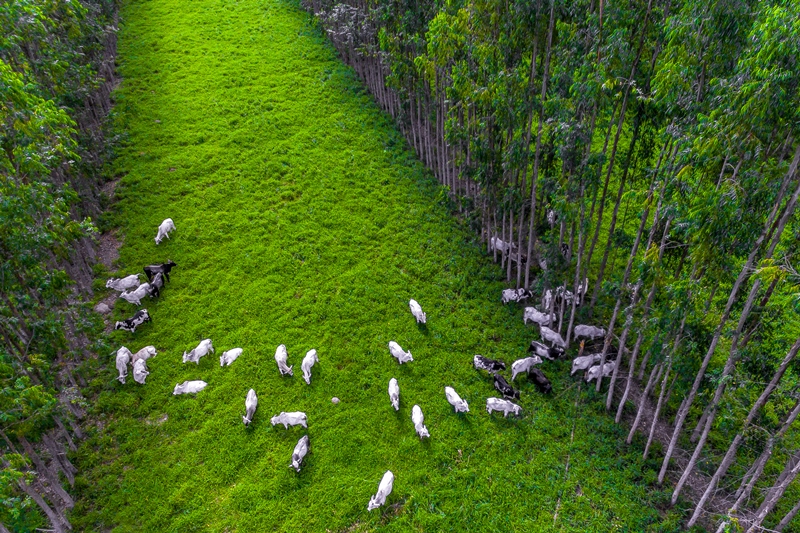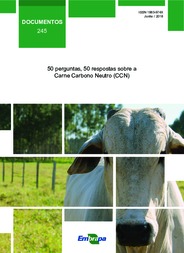Partnership agreement focuses on sustainable meat market development
Partnership agreement focuses on sustainable meat market development
The Brazilian Agricultural Research Corporation (Embrapa) and Marfrig Global Foods are forging a strategic alliance to strengthen the de-commoditization of Brazilian beef through the production concepts of Carbon Neutral Beef (CNBB) and Low Carbon Brazilian Beef (LCBB), which are seals developed by Embrapa to certify beef produced using systems that neutralize or reduce the methane gas emitted by the animals.
The initiative strengthens both the local beef market and the market for beef exports, especially to more demanding markets, by differentiating Brazilian beef in negotiations of non-tariff barriers related to sustainability issues. “Through this partnership, we will help position Brazilian beef at a whole new level of value perception in the local and international markets, which are increasingly demanding sustainable production practices, from animal welfare to integrated systems that help to reduce greenhouse gases,” said Cleber Soares, director of innovation and technology at Embrapa.
The partnership represents an important advance by encouraging an important link in the cattle production chain to foster development and promote the concept of a more sustainable product with consumers. “Through this partnership with Embrapa, Marfrig reinforces its strategic pillar of sustainability, by encouraging sustainable production and offering consumers beef with a guarantee of origin and lower greenhouse gas emissions,” said Martín Secco, CEO of Marfrig Global Foods.
Cattle production accounts for 6.8% of Brazilian GDP. From 1990 to 2015, the country’s pasture area has decreased by 12%, while meat productivity has grown 229%. “We also are making headway in certified sustainable production systems with a high level of animal welfare, which translates into a new leap forward in the quality of beef production,” said researcher Fabiana Villa Alves, from Embrapa Beef Cattle in Campo Grande, Mato Grosso do Sul. “Concept-brands contribute directly to increasing the value of products from Brazilian agricultural and livestock producers,” she added.
Researcher Roberto Giolo de Almeida from Embrapa Beef Cattle explains that carbon neutral Brazilian beef (CNBB) is produced using integrated systems combined with planted trees, which are responsible for sequestering carbon and for potentially neutralizing the methane emissions from the grass-fed animals, while also providing thermal comfort for the cattle. Meanwhile, low carbon Brazilian beef (LCBB) can be produced using integrated systems or not with pastures, without the presence of trees, but with proper pasture management that fixes carbon in the soil, enabling the system to reduce or mitigate animal emissions. The expectation is for products under the program to reach the market in 2019.
Gustavo Porpino (RN648 JP)
Innovation and Business Secratariat
Press inquiries
gustavo.porpino@embrapa.br
Phone number: + 55 61 3448 2093
Dalizia Aguiar (MTb 28/03/14/MS)
Embrapa Gado de Corte
Press inquiries
gado-de-corte.imprensa@embrapa.br
.
Further information on the topic
Citizen Attention Service (SAC)
www.embrapa.br/contact-us/sac/


